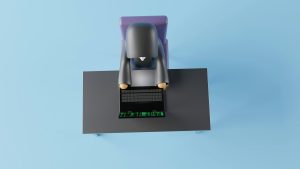Microdentials and Digital Badges as the new way to learn
The world of education is constantly evolving with new technologies and methods being introduced to enhance learning. In recent years, microdentials and digital badges have emerged as a new way to learn, offering a flexible and personalized approach to education. These digital credentials are gaining popularity among both learners and employers, and are reshaping the traditional education model. In this article, we will explore the concept of microdentials and digital badges, how they are changing the way we learn, and their potential impact on the future of education.
The Rise of Microdentials and Digital Badges
To understand the concept of microdentials and digital badges, we must first understand the traditional approach to learning. In the past, education has been primarily focused on degrees and diplomas, indicating a broader knowledge in a specific field. While degrees and diplomas have their merits, they have certain limitations. They often require a significant time and financial commitment, and may not provide practical skills necessary for the job market.
This is where microdentials and digital badges come in. A microdential is a smaller, specialized credential that focuses on a specific skill or competency. Digital badges, on the other hand, are visual representations of these competencies, which can be displayed on digital platforms such as LinkedIn or online resumes. These digital credentials are typically earned after completing a short course or training program, making them more accessible and cost-effective than traditional degrees.
The Benefits of Microdentials and Digital Badges
1. Personalized Learning
One of the greatest advantages of microdentials and digital badges is their flexibility in learning. Unlike traditional degrees, which often follow a fixed curriculum, microdentials allow learners to choose the skills they want to acquire. This personalized approach to learning allows individuals to focus on specific areas they are interested in, resulting in a more efficient and effective learning experience.
2. Real-World Skills
In today’s competitive job market, employers are looking for candidates with practical skills and experience. Microdentials and digital badges provide just that. These digital credentials focus on practical skills that are highly relevant to the job market, such as coding, data analysis, or project management. By earning these microdentials, learners can showcase their skills and stand out to potential employers.
3. Cost-Effective
Traditional degrees can be expensive, leaving many individuals with a heavy financial burden. With microdentials and digital badges, learners have the option to choose which skills they want to acquire and pay only for those courses. This targeted approach to learning can save individuals time and money, making education more accessible to a wider audience.
4. Motivation to Learn
Another benefit of microdentials and digital badges is the motivation they provide for learners to continue their education. Instead of completing a degree and stopping there, learners can continue to earn microdentials and digital badges throughout their careers, keeping their skills up-to-date and relevant. This lifelong learning approach can lead to a more dynamic and motivated workforce.
The Future of Education
The rise of microdentials and digital badges is a clear indication that the traditional education model is changing. As technology advances and the demand for specific skills increases, these digital credentials are becoming more and more valuable. They provide a more flexible, personalized, and cost-effective solution to learning, and offer individuals the opportunity to continuously improve their skills.
In the near future, we can expect to see more educational institutions, as well as organizations, offering microdentials and digital badges. This will not only enhance the learning experience for individuals, but it will also allow employers to have a more accurate understanding of a candidate’s skill set. As a result, we may see a shift away from traditional degrees and towards a more skills-focused approach to education.
In Conclusion
Microdentials and digital badges are revolutionizing the way we learn. These digital credentials offer a more flexible, personalized, and cost-effective method of learning, providing individuals with practical skills highly desired by employers. As the demand for specific skills increases, we can expect to see a wider adoption of microdentials and digital badges, reshaping the landscape of education for years to come.









